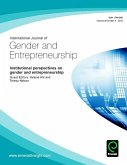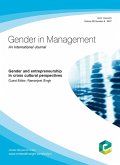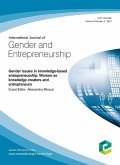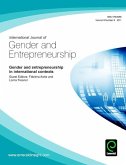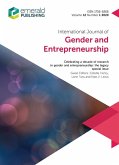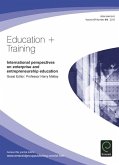This e-book raises critical questions about women in entrepreneurship using the lens of higher education as the instrument of enquiry. What is the role and value of higher education for female entrepreneurs? How is that role connected with the motivation of these entrepreneurs? How do varying contexts influence and impact upon by female entrepreneurs? The papers in this e-book present fresh and outstanding research to answer such questions. Selected articles that are included in this e-book are representative of a journey into myriad spaces created by the questions and the enquiry that is obtained from the research. Our selection was predicated upon the need for in-depth enquiry both in terms of process and also in terms of content that could go beyond the macro level data and regressed variables of other studies, past and present. The GEM report on female entrepreneurs (Kelley et al., 2013) indicated that an estimated 126 million women were starting or running new businesses in 67 economies around the world in addition to the 98 milion who were involved in running established businesses. They were creating jobs for themselves and for others, and a good number were planning for growth. How women perform as entrepreneurs is best understood by exploring their own perceptions about entrepreneurship and by their rates of new business creation. Confidence and ability are key factors entering this activity. Of considerable importance is the role of education and training for enabling and empowering women entrepreneurs in terms of enhancing skills and boosting confidence with which to change their own perceptions of themselves and their capabilities. Numerous studies in well-established journals including the ones in this e-book have attempted to explore a range of factors including the particular advantages or otherwise of education. The focus on higher education, is, however, unique, and this is why this e-book acquires a specific poignancy for raising the threshold of debate on the subject to another level. This focus is important for research, business development and policy because the broader the scope of our findings the less we are able to act on issues where we can all make a difference through varied forms of intervention. Large macro level data based research can help us to draw the map of female entrepreneurship around the world. They may even identify broad areas of concern where action needs to be taken, as in the analysis of the importance of education. However, since homogeneity of populations has never been a feature of reality it is difficult to pursue actions that may be appropriate for different communities of interest. We can rely better on a clearly defined 'habitus' which is made up of the interactions between people's experiences and the embedded values prevalent in that social space. We can use methods such as randomised control trials to explore the specific behaviour and actions of a community and relate that to wider normative patterns to help develop instruments of intervention that can make a difference; hence our interest in the particular community of graduate women entrepreneurs.Attention to specifics and the nature of enquiry that is appropriate to focused approaches still need to use the critical research threads of concepts, content, context and methodology. The papers in this e-book use the colours of these threads of articles to elaborate on the key concepts, the content, the different contexts and the methodological ramifications of doing research on the subject. We hope readers of this e-book will find the coverage of the subject and the individual articles to be of interest. We hope that the interest will not stop there, and that in reviewing the content and the propositions made in this issue, readers will turn to fresh enquiry into a subject that continues to grow in significance around the world.
Dieser Download kann aus rechtlichen Gründen nur mit Rechnungsadresse in A, B, BG, CY, CZ, D, DK, EW, E, FIN, F, GR, HR, H, IRL, I, LT, L, LR, M, NL, PL, P, R, S, SLO, SK ausgeliefert werden.



